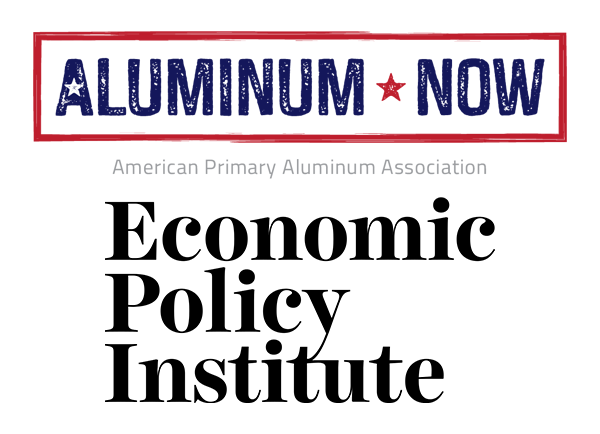Having served on Senate Armed Services Committee, I know first-hand just how important infrastructure is to our national defense. It is much harder to defend a nation with crumbling roads, an electrical grid that is totally inadequate for the modern age, and an inability to provide secure high-speed Internet to all Americans. In a modern, vibrant economy, having a first-rate infrastructure is critical to ensuring that America maintains its place as a global leader. In modernizing, however, we cannot be dependent on foreign nations to supply the critical raw materials and components that will be necessary. The experience of the pandemic has taught us that lesson. American-made primary aluminum and high purity aluminum are essential to building our nation’s defense infrastructure, and provide good-paying jobs for thousands of American workers in Indiana and all across America’s heartland.
The Section 232 program that applied a 10% tariff on foreign aluminum imports, saving America’s remaining aluminum smelters from imminent closure, will also allow us to rebuild our infrastructure. With only six surviving smelters, America has the absolute bare minimum primary aluminum capacity to meet critical infrastructure needs in a national emergency. These are the smelters that will produce the aluminum America needs to Build Back Better and to supply the building blocks necessary for a thriving modern economy.
Just a few short years ago, the entire industry was on the verge of closure. Global overcapacity had collapsed prices to the point where every smelter in the United States had announced that it planned to shut down. The Section 232 program put a floor under the industry and is saving the remaining smelters. But the global overcapacity crisis continues to persist. America’s competitors did not substantially reduce their excess capacity after the tariffs were put in place. To the contrary, many producing countries doubled down, providing more subsidies and continued expanding capacity. Other producing regions, such as the European Union, maintained their own long-standing import tariffs on primary aluminum, diverting even more excess global supply to the United States.
Now, just when the U.S. needs its aluminum smelters to rebuild America, the whiskey industry is asking the administration to lift the Section 232 tariffs. Doing so in exchange for reducing similar tariffs on whiskey imports into the EU ignores the fact that the whiskey industry’s U.S. sales increased by over $1.2 billion in just the last four years. The resulting $130 million increase in sales revenue for its exports to Europe is simply not worth the damage it would cause to America’s national security.
When the Section 232 program was initiated, the U.S. aluminum industry was on the verge of collapse. American aluminum jobs and our nation’s national defense were at stake. When it comes to helping Indiana families and rebuilding America’s infrastructure, the benefits of the Section 232 program should never be undone to boost the short-term profits of a special interest group that is thriving, while tens of thousands of American manufacturing workers and their families will undoubtedly feel the pain.
As my friend President Biden remarked in Pittsburgh, “Wall Street didn’t build this country; the great middle class built this country. And unions built the middle class.” We need to create millions more, not less, good-paying union manufacturing jobs in Indiana and across this great nation, like those in the primary aluminum industry.
While our country begins to recover from the pandemic, our trade policies should seek to create and protect American manufacturing jobs. The Section 232 program is saving a vital industry that is critical to the nation’s supply chain, but more needs to be done. President Biden’s once-in-a generation investment in America will help to do more for America’s critical industries such as aluminum by rebuilding U.S. infrastructure, supporting domestic manufacturing jobs and strengthening U.S. supply chains as we work together to Build Back Better.
Evan Bayh served as a U.S. senator from Indiana from 1999 to 2011 and as the 46th governor of Indiana from 1989 to 1997.



